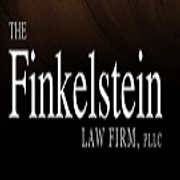What's the Difference Between a Will & a Trust?

Wills and trusts are estate planning arrangements that allow you to decide who inherits your assets. A lawyer will help you design one and customize these plans to meet the needs of your estate. Each document grants specific powers and protections. Here’s what you should know to help with the estate planning process.
Wills
A will goes into effect after you pass away. It’s more comprehensive than a trust. You can include all the smaller items not owned by the trust, like family heirlooms, jewelry, artwork, and other possessions that have special meaning but perhaps not a particularly high dollar value. When drawing up a will with your lawyer, you can include additional planning in the document, such as who should raise minor children and any preferences for funeral services.
Trusts
 A revocable living trust goes into effect at the time of signing. A trust covers specific, high-dollar assets—typically, real estate—and the trustor transfers ownership of the asset directly to the trust itself.
A revocable living trust goes into effect at the time of signing. A trust covers specific, high-dollar assets—typically, real estate—and the trustor transfers ownership of the asset directly to the trust itself.
Legally speaking, the trustor is no longer the owner of the included assets. Upon your death, ownership passes to the beneficiary of your choice.
Unlike a will, a trust doesn’t have to go through the lengthy and costly probate process, in which the courts validate an estate and ensure its debts are settled and assets distributed. The terms of a trust are kept private and confidential, known only to you, your beneficiaries, and lawyer.
A solid estate plan should include both a will and a trust, and a lawyer will guide you through the process of creating each one. The Finkelstein Law Firm in Goshen, NY, has more than 45 years of experience serving Orange County. They provide representation in estate planning, personal injuries, and real estate transactions. Call (845) 294-9003 to schedule a consultation, or visit the website to learn more about the firm’s practice areas.
About the Business
Have a question? Ask the experts!
Send your question

